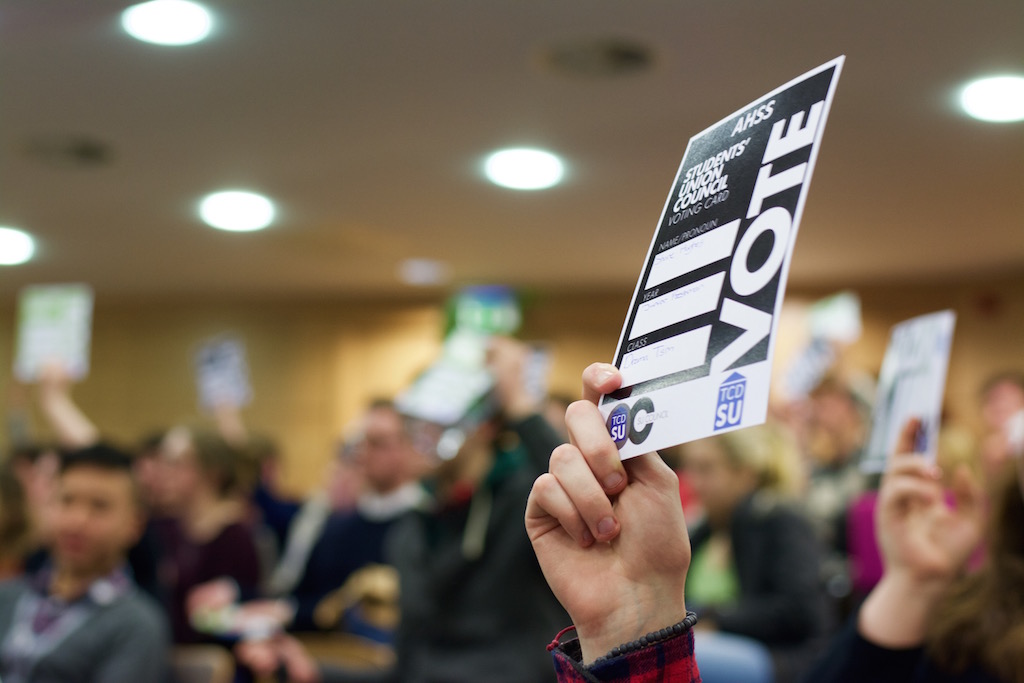Trinity College Dublin Students’ Union (TCDSU) passed a motion tonight to support the expansion of Trinity’s Asylum Seeker Access Provision programme, an initiative run by College to give asylum seekers living in direct provision access to higher education.
The motion was proposed at council by first-year ancient history and archaeology class representative Sárán Fogarty and was seconded by second-year sociology and social policy class representative Cian Kelly-Lyth.
The motion states that the president and other sabbatical officers should “campaign for college to expand the ASAP programme”.
Speaking in favour of the motion, Fogarty said that it was a “rights-based issue in terms of rights to education”.
“The current ASAP scheme”, he said, “is not nearly enough to serve the needs of those living in direct provision”.
He said the motion would show that “we are open and inclusive for all because I don’t think Irish society reflects this at the moment”.
Both TCDSU President Laura Beston and Education Officer Niamh McCay spoke in favour of the motion and also introduced an amendment to the motion, mandating the president and sabbatical officers to “assist with the recruitment process for eligible students, lobby the Participation Advisory Group and campaign the college to expand the ASAP programme”.
The Asylum Seeker Access Provision covers all fees for those who avail of it, and also includes an annual stipend of €1,500, public transport costs, on-campus food allowance and a laptop. Trinity awards four of these scholarships every year, after introducing it in April 2019.
To be eligible for the scholarship, students must live within commutable distance of Trinity and have completed the leaving certificate. Currently, only students from six direct provision centres – two in Dublin, two in Kildare, one in Meath and one in Louth – are eligible.
Speaking to The University Times last year, Lucky Khambule, a founding member of the Movement of Asylum Seekers of Ireland said: “It is important that education is key to everybody. I know there are scholarships, four here [in Trinity]. When that was announced, I said this is Trinity now, just think of four and you think of how big this institution is, and they can just start with four.”
“Why not go with 15? It’s something that is doable but it is all about the change in attitude. This is what it’s like when you deal with government. The government has the ability to change things but the attitude is not there.”







